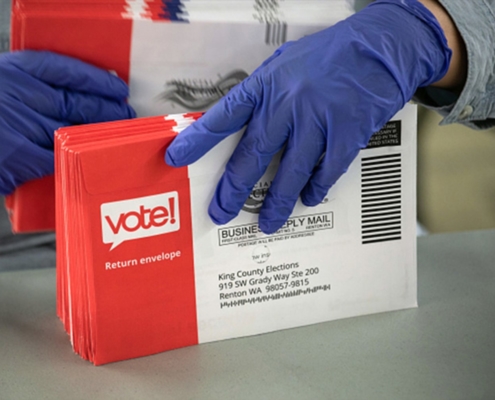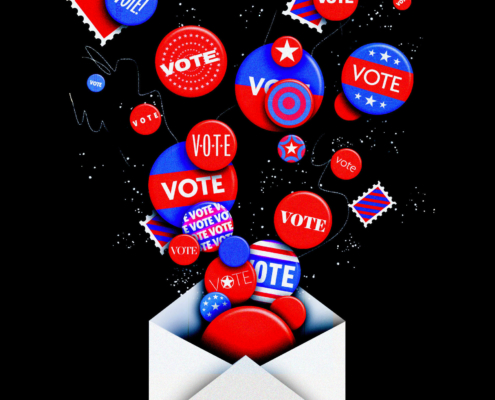Posts

UCLA Social Sciences Dean’s Salon: Protecting the Right to Vote in the 2020 Presidential Election
Darnell Hunt, Ph.D., Dean of UCLA's Division of Social Sciences,…

Leading Voting Rights Experts Discuss Universal Vote-By-Mail Amidst COVID-19
By Eliza Moreno, Communications Manager, Latino Policy &…

UCLA Voting Rights Project Releases Recommendations for Implementing Vote-by-Mail Program
The UCLA Voting Rights project released a white paper this…

